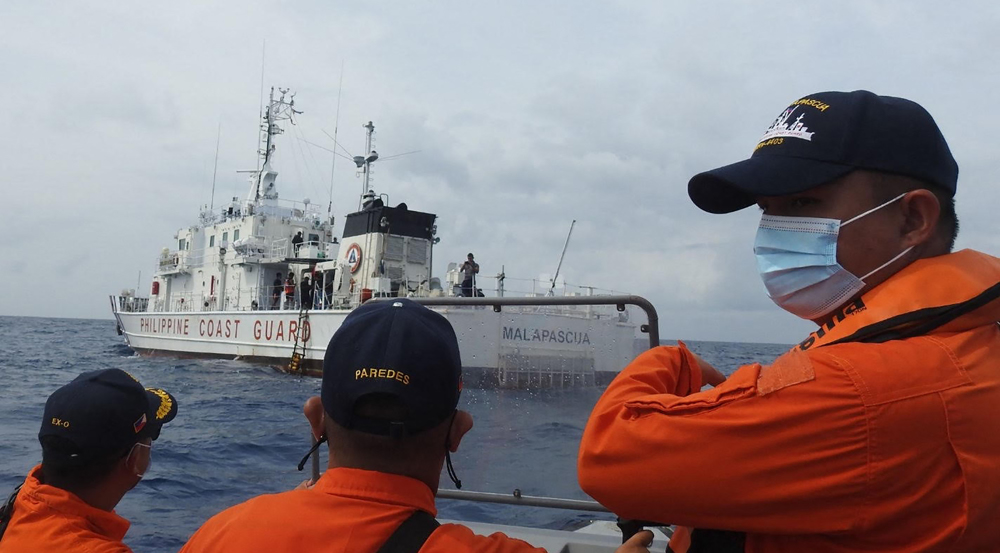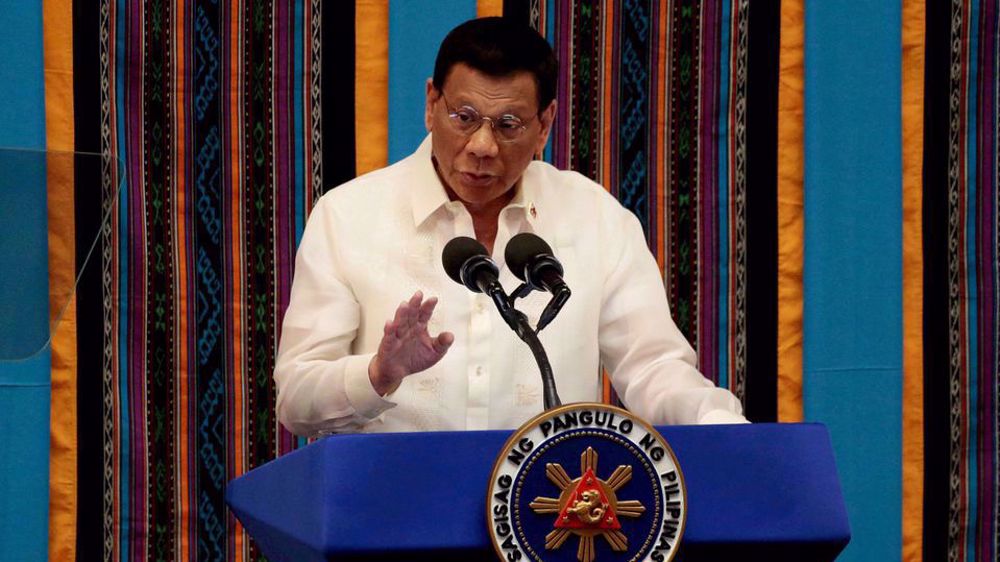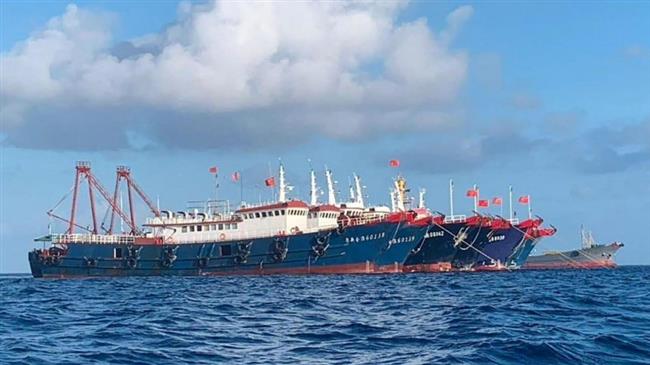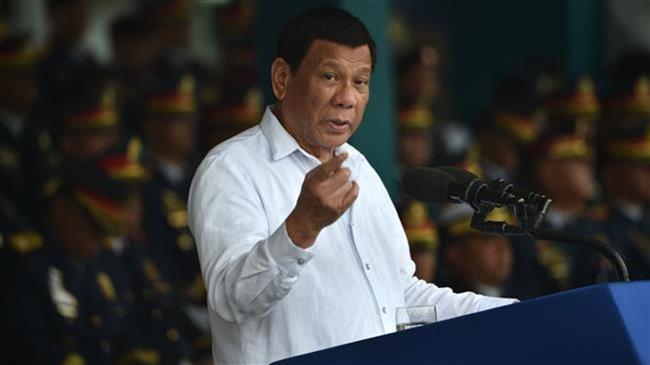Philippines rejects China's fishing ban in disputed South China Sea
The Philippines has rejected a fishing ban enforced by China in the South China Sea, encouraging its fishermen to go fishing in the disputed waters, ramping up tensions with Beijing.
The annual summertime fishing moratorium issued by China more than 20 years ago runs from May 1 to August 16 and covers some areas of the South China Sea as well as other waters off the Chinese coast.
The Philippines' South China Sea taskforce said in a statement late on Tuesday that the Chinese fishing ban did not apply to Filipino fishermen who were fishing in what it said were the country's own waters.
"This fishing ban does not apply to our fishermen," the taskforce said. "[O]ur fisher folk are encouraged to go out and fish in our waters in the WPS (West Philippine Sea)."
"The Philippines is not deterred from defending our national interest, patrimony, and our dignity as a people with all that we have," the taskforce added.
Beijing has rejected a 2016 international tribunal ruling that declared China's historical claim over most of the South China Sea to be without basis.
Philippine President Rodrigo Duterte, who has previously threatened to deploy military forces to the South China Sea to stop China from pursuing its claims in the disputed waters, insisted on Wednesday that the Philippines' sovereignty over its waters "cannot be bargainable."
Duterte has been under growing domestic pressure to take a harder line against the Chinese claims. But he is also reluctant to antagonize the northern neighbor.
He reminded the nation in a televised address that the Philippines was indebted to its "good friend" China in many ways, including for the free COVID-19 vaccines that were supplied by Beijing.
China has provided 3.5 million vaccine doses to the Southeast Asian country so far, including one million free doses.
"China remains our benefactor, and… just because we have a conflict with China does not mean to say that we have to be rude and disrespectful. As a matter of fact, we have many things to thank China for — both its help in the past and its aid today," Duterte said.
The president said, however, that despite all the aid given by China, he would not abandon the disputed waters. "I'll tell China, we do not want trouble, we do not want war. But if you tell us to leave — no!"
"There are things that are not really subject to a compromise, such as us pulling back. It's difficult. I hope they understand, but I have the interest of my country also to protect," he insisted in the speech.
Duterte's remarks came after the country's Defense Ministry attacked China over the claims in the South China Sea.
"China has no business telling the Philippines what we can and cannot do with our own waters," the Filipino Defense Department said, after China's Foreign Ministry said on Monday that the Philippines should "stop actions complicating the situation and escalating disputes."
In recent weeks, Manila has boosted "sovereignty patrols" involving the navy, coast guard, and fisheries in the Spratly Islands, an archipelago contested by several countries, including China.
Separately, Philippine Foreign Secretary Teodoro Locsin Jr. issued a public apology on Tuesday to his Chinese counterpart, Wang Yi, for disparaging remarks against China that he had tweeted earlier.
In a Monday tweet, Locsin used derogatory expressions to call on Chinese coastguard ships to exit the disputed waters.
China has urged the Filipino leaders to maintain "basic etiquette" in their diplomatic relations.
In a statement on Tuesday, China's Foreign Ministry urged Manila to respect Chinese sovereignty and jurisdiction and stop certain behavior that only complicated matters.
The Chinese ministry cited comments by the Philippine president that the differences between the two countries should not have a detrimental effect on the two nations' friendship and cooperation.
"China has always worked, and will continue to work with the Philippines, to properly resolve differences and advance cooperation through friendly consultations," it said.
Hezbollah’s media relations chief killed in Israeli strike on Beirut, reports say
How CPJ masks the truth about Palestinian journalists killed by Israel in Gaza
Assad: Eradicating terrorism regional, int’l responsibility
‘Fascist occupation army’: Hamas slams Israeli onslaught on Beit Lahiya
VIDEO | Press TV's News Headlines
Ukraine war will end ‘sooner’ with return of Trump: Zelensky
Pro-Palestine rally held in Seoul
Beit Lahiya massacre: Tens of Palestinians killed in Israeli strike














 This makes it easy to access the Press TV website
This makes it easy to access the Press TV website